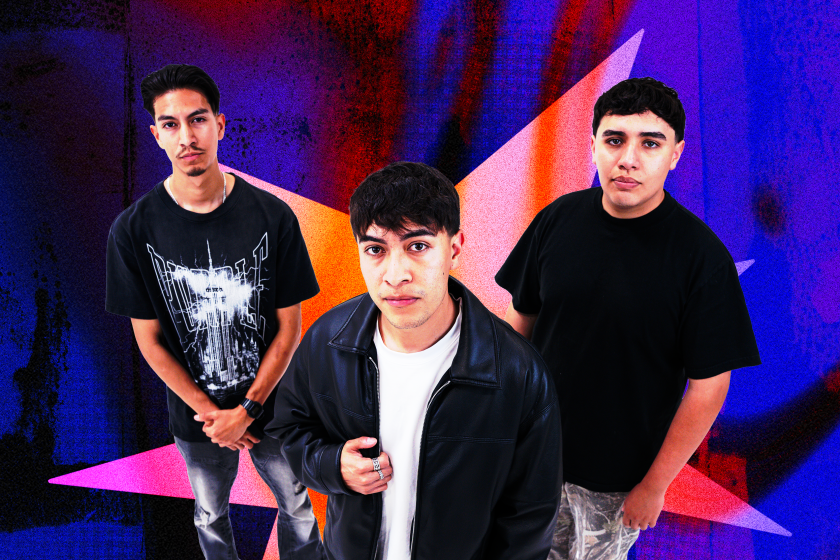Critic’s Notebook: Antiheroes rule the screen at Toronto
- Share via
Reporting from Toronto — The blood was boiling at the Toronto International Film Festival this week, where the movies were dark and brooding, with filmmakers churning up a world of turmoil out of our discontent.
I say our discontent because more often than not, the movies reflect the collective ethos, rather than stir it up. If the filmmakers are reading us right, we have moved beyond merely being worn down by war, politics, the economy and institutions (including marriage); we’re of a mind to go rogue.
Consider where the big guns are aimed: George Clooney is resentfully grieving in “The Descendants.” Ryan Gosling is seething over political deceiving in “The Ides of March,” then so locked down as to be barely breathing in “Drive.” Gerard Butler is righteously blasting in “Machine Gun Preacher,” then he and Ralph Fiennes are slashing and loudly rehashing in the modernized Shakespeare of “Coriolanus.”
Matthew McConaughey’s dirty detective is engaged in off-duty exterminating in “Killer Joe,” while Woody Harrelson’s bad cop is unrelenting in his beatings in “Rampart.” Michael Fassbender is furiously succumbing to sexual proclivities in “Shame.” Even Brad Pitt in “Moneyball” is rebelling, the rules of the game suddenly too constraining.
No one is content with the status quo. As Sam Childers, the real “Machine Gun Preacher,” put it during a red carpet interview, he may be just a hillbilly with a gun, but someone had to protect the orphans of Sudan. And if festival goers here are any barometer, we are indeed ready for a little payback. (At least that’s the sense I got from the “Machine Gun” premiere crowd, some of them seriously discussing taking up arms to join Sam.)
Though all these films won’t be Oscar contenders, the moody bruising should still make for a “there will be blood everywhere” Hollywood awards season. There was little of the emotional uplift we had last year from films such as “127 Hours” and “The King’s Speech.” Looking back as Toronto 2011 was winding down, even last year’s “Black Swan,” with Natalie Portman’s deadly free fall, and “The Fighter,” with Mark Wahlberg battered and bloodied, seem like a walk in the park.
Whatever awards the films reap, what Toronto clearly foreshadows is a trend toward narrative dramas populated by antiheroes. It’s not just the stories that are pushing our buttons, but complex characters who test us with their traits — enthralling, alluring, frightening, commendable, contemptible. Authority, institutions, the rules of law, and love, are being questioned at every turn. (Even the comedies and documentaries have attitude.)
If you’ve got the stomach for it, by and large these movies will grab you by the throat and not let go. The gore is also flowing freely and the hands spilling it are merciless, with “Killer Joe” director William Friedkin apparently trying to out-bash and out-bleed “Bonnie and Clyde,” “Blood Simple” and both parts of “Kill Bill.” (On a smaller scale, Bobcat Goldthwait’s “God Bless America” goes “Natural Born Killers” on us).
When it comes to the battles they are picking, some of the rebels are more high-minded than others: What political duplicity does to true believers is the subtext in “The Ides of March,” while the tribal warfare that Shakespeare envisioned in “Coriolanus” still resonates today.
Some of the antiheroes are concerned only with getting down and dirty — McConaughey is scarily mesmerizing as a sexually twisted, demonic detective aching to provoke and outrage us in “Killer Joe,” and Harrelson is wound tighter than ever in “Rampart” (and that’s saying a lot).
The rebellion this year is very much a man’s world; women on screen are, in contrast, in states of repression or depression. Glenn Close’s passion project, “Albert Nobbs,” has her character masquerading as a man so she can survive in turn-of-the-century Ireland. Catherine Keener is down in the dumps in “The Oranges,” Rachel Weisz is lost in love and over the edge in the ‘50s-era “The Deep Blue Sea,” and Charlotte Rampling and Judy Davis feel the undertow in “The Eye of the Storm,” to name but a few.
Frustration with the ways in which the world is changing cuts across borders as well, with compelling portraits of younger generations fighting to preserve old ways in modern times. Up-and-coming Italian director Emanuele Crialese’s “Terraferma,” which recently picked up a special jury prize at the Venice film festival, cleverly meshes the disappearing fishing life in a small Sicilian island with issues of illegal immigration and urbanization. “The Last Winter” from director John Shank is a moving meditation on the death of a small farm collective in rural France.
There were lighter notes being played — “50/50,” “Butter,” “Salmon Fishing in the Yemen,” “The Oranges,” among the most appealing and appeasing — but darkness dominated. As to whether we will ultimately look back at the anger of 2011 and find the sort of cinematic greatness that the antiheroes of the ‘70s bore — Dirty Harry, Travis Bickle, Serpico, Mad Max, anyone in “The Godfather” … — we can only hope.
More to Read
The biggest entertainment stories
Get our big stories about Hollywood, film, television, music, arts, culture and more right in your inbox as soon as they publish.
You may occasionally receive promotional content from the Los Angeles Times.










